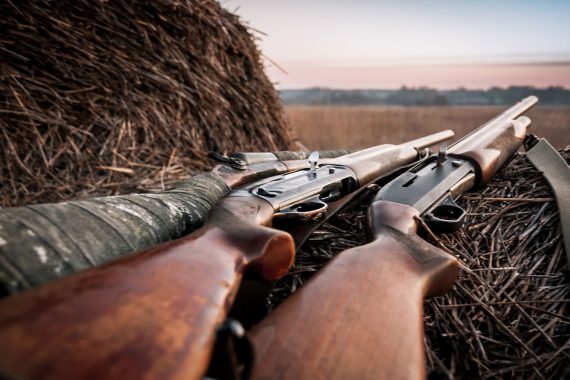Exclusive Former GPC negotiator Dr Peter Holden has been appointed head of the BMA’s professional fees committee after members raised issue with the way it handled negotiations over firearms licensing.
Dr Holden told Pulse that the BMA had been reluctant to ‘say boo to the goose’ in negotiating over fees for extra contractual work and it was time to ‘break the concept that doctors are a “free good”‘.
The UK firearms lobby includes very ‘influential people’, said Dr Holden, who were protesting charges for GPs to provide a medical license ‘despite spending more than that on a box of ammunition’.
He said: ‘I was put up to it by six people, because they weren’t happy with the way the firearms issue was handled. The issue has been the BMA have been too reluctant to say boo to a goose.’
Problems over firearms licensing sparked in 2015 when the police watchdog, Her Majesty’s Inspectorate of Constabulary, recommended anyone wanting a gun license get a medical report. Since then the BMA has updated its guidance twice, and it remains in negotiations with the Home Office about changing the process to be less onerous on GPs.
But Dr Holden said: ‘The bottom line is, too many people are enthralled to the firearms lobby which incorporates some very influential people, who believe they shouldn’t have to pay for a medical. Yet they will spend many times that on a box of ammunition, scores of times that on a gun.’
He added that it remained the case that GPs, as professionals, could waive their fee – for example in rural areas with large numbers of hill farmers – but that it was up to individuals to decide ‘who I work for charitably, and at what time’.
‘There’s a more fundamental thing we need to tackle, rather than “what can GPs charge people for”. We need to break the concept that GPs and other doctors are a free good,’ he said.
Dr Holden previously chaired the professional fees committee from 1997 to 2006 and told Pulse that in this time he took income from professional fees to ‘40% ahead of inflation’. He replaces Dr John Canning in the role.
A BMA spokesperson said: ‘The BMA’s guidance on firearms is informed by professional experience, updated as necessary, and is subject to independent legal advice.
‘The BMA continues to liaise directly with the Home Office on our members’ behalf, and has expressed our members’ concerns on many aspects of the current licensing system. Our engagement is aimed at providing doctors with the best advice while working with government to ensure public safety.’
What is the firearms licensing row about?
The professional fees committee welcomed the suggestion when it was first proposed, as long as it did not add to GP workload and on the assumption that GPs could charge a fee.
But the current firearms licensing system sees the police approach GPs when a patient tries to obtain a license, with officers writing they will assume GPs have approved the process if they don’t reply.
GPs have objected that they are being asked to operate outside their professionalism in making an assessment over whether someone was psychologically fit to own a weapon.
The row has seen LMCs issuing template letters for rejecting requests, and guidance from the BMA that GPs could refuse on the basis of a conscientious objection was reversed last summer.
A motion agreed in November approved the BMA to renegotiate directly with the Home Office over licensing as GPs rejected the idea they should be ‘interpreting medical evidence’ for the police to decide someone’s suitability to hold a license.














